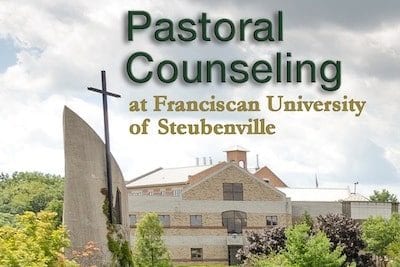A couple of weeks ago, we briefly discussed (in response to Benner’s chapters 3 & 4) issues related to the implementation of pastoral counseling—that is, the kinds of practical decisions, approaches, and techniques pastoral counselors might use when meeting with clients. I also asked you to think about resources or counseling practices that you have or would use with clients that can be seen as unique to pastoral counseling.
For this blog, reflect again on Benner’s chapter 3 & 4 and write about the general question: What does pastoral counseling (in your estimation) look like in practice? To answer this question, you can focus on any variety of topics from techniques that you are aware of, resources you would use (and how you would see implementing them), and areas of overlap between clinical and pastoral counseling strategies (skills). The gist of the blog should be on practical skills and/or issues rather than theoretical ideas.
Benner presents a good definition of Pastoral Counseling in his book, Strategic Pastoral Counseling, when he states that it is strategic meaning focused and time-limited, pastoral meaning it is “offered by a representative of the Christian Church who is accountable for the Church,” and counseling meaning it is “focused on problems experienced by persons seeking pastoral assistance.” What is unique to Pastoral Counseling is the “holistic view” that pastoral counselors have towards their clients. Pastoral counselors look at the whole person, in contrast to behavioral therapists who make focus mainly on behaviors, cognitive therapists who focus on thoughts, or psychoanalytic therapists who focus on the unconscious. Some practical approaches and techniques that Pastoral Counselors employ according to Benner include, bibliotherapy, which means reading the bible or spiritual passages that may intersect with the problem that a client is bringing into session. Benner even offers some suggested books to read including, “Return of the Prodigal Son, Forgive and Forget, Disappointment with God,” amongst others that seem to deal with mental health and spiritual problems that individuals may face.
Benner also offers the techniques to “listen to the story beyond the story,” in the Pastoral setting, alluding to the fact that clients may deeper narrative with embedded spiritual concerns than they might be aware of. Bennett suggests that, “spiritual issues are often masked by nonspiritual concerns.” I have found this to be true in my own life when I am feeling anxious or depressed it is often when I haven’t been praying regularly and have been trying to take too many responsibilities on by myself without involving God in the process. Benner talks about this listening skill of Pastoral Counselors as being able to distinguish the “story of one’s heart.” I liked the example in Chapter 3 regarding the topic of sin in a Pastoral Counseling setting. Benner stated, “sin can either be used as a power ploy, i.e. ‘what you are telling me is that you are living in sin’, or as a divine perspective on an issue, i.e. ‘the brokenness you have described forms a central part of what Scripture means by sin. It is where God wants to meet you and heal you.” In the second example the theological is brought into the psychological problem. In this way client’s problems can be thought of with God as a mediator, healer, or teacher for their lives. Pastoral Counseling is still different from spiritual direction in that the Holy Spirit is not leader of the counseling session, but Benner suggests the spirit should be thought of as the pastoral counselor’s “assistant,” and that all healing and growth are ultimately from God. In Benner’s fourth chapter he discusses the 8 dimensions of Pastoral Diagnosis as, “Awareness of God, Acceptance of God’s grace, repentance and responsibility, response to God’s leadership, involvement in the Church, experience of fellowship, ethics, and openness in faith.” These are not meant to be questions to ask, but they are a framework for listening and reflecting on a client’s problems in a pastoral counseling session. The two tasks that Benner distinguishes as practical skills for a pastoral counselor are to “explore a person’s feelings, thoughts, and behavioral patterns, and develop new strategies for coping and change.” These tasks overlap with clinical counseling but the difference is that in a Pastoral setting God is believed to be the source of all healing and love. In Pastoral Counseling God works in the midst of client’s life circumstances and essentially walks with the counselor and client on the client’s journey to change, grow and become more reliant on His will for their lives.






